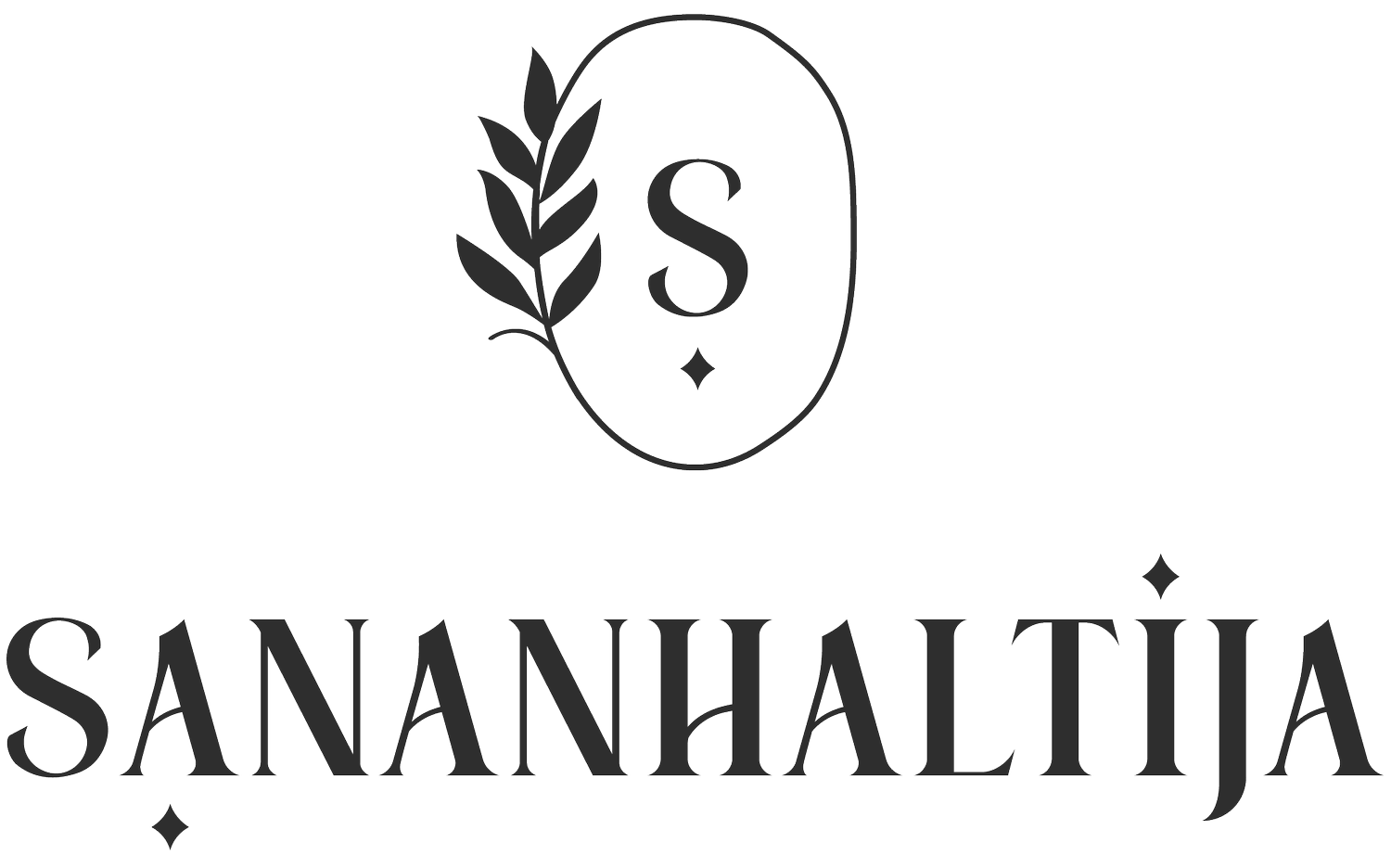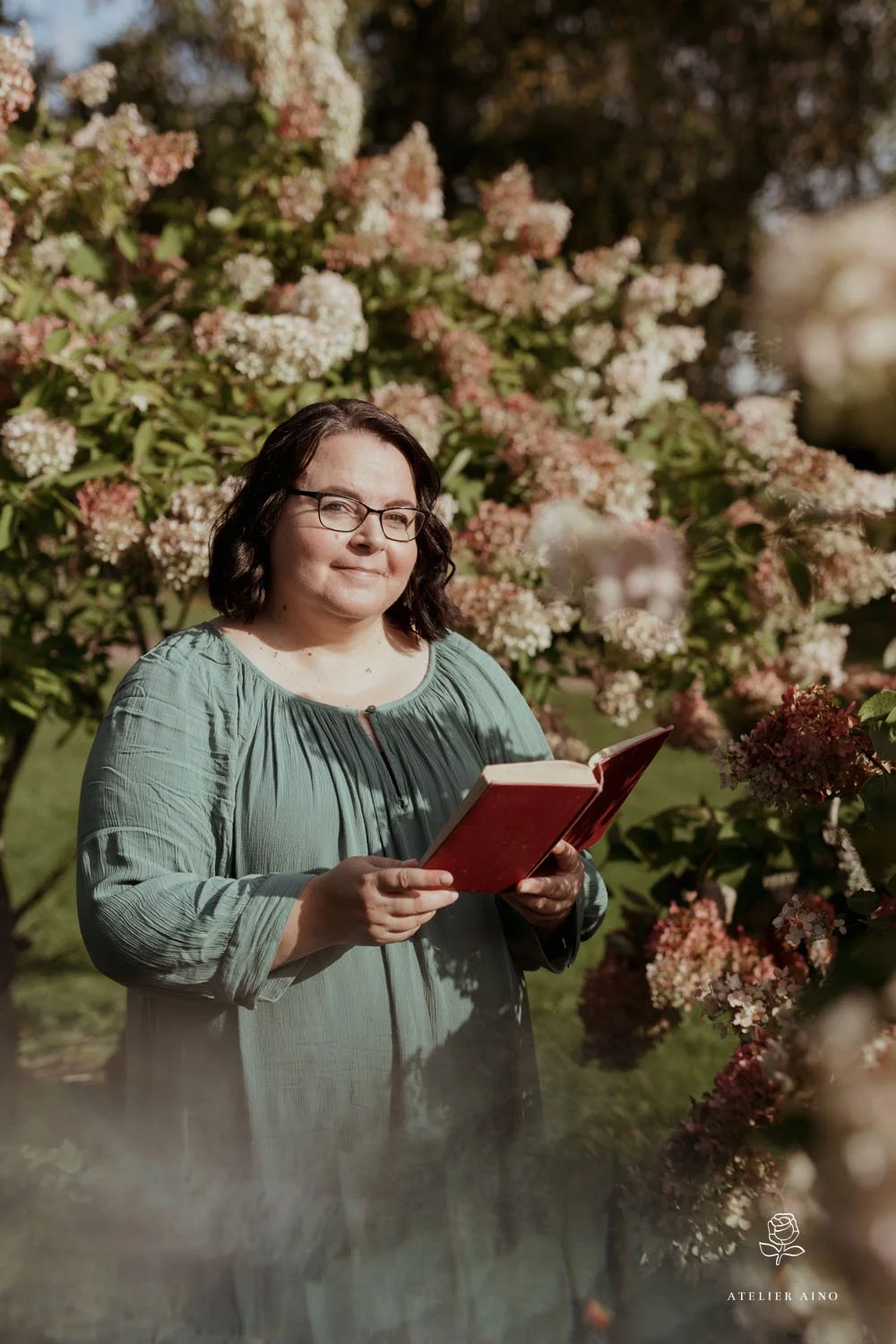Frequently asked questions about creative writing and bibliotherapy.
On this page, I have collected frequently asked questions about wordsmithing, creative writing and literary therapy.
Discover the benefits and fun of creative activities and methods. Find out what happens in groups and workshops.
-
Literacy therapy is a multi-treatment interactional process involving the therapist or counsellor and members of the group or, in individual therapy, the client.
In groups using literacy therapy methods, people read prepared texts, write themselves and discuss the feelings and ideas evoked by the texts they read and write. Literacy therapy is based on the idea that it is easier to approach one's own problems and feelings through written texts than directly. Texts can help you to identify things and feelings that have previously been hidden or for which you have not even had words.
Just reading or writing can be therapeutic, but literacy therapy always involves discussing the feelings and thoughts that come from reading and writing. Interaction provides an opportunity to mirror one's own thoughts, feelings and experiences with those of others, which can generate new insights and perspectives, for example on the possibility of change. Writing, on the other hand, has been found to enhance the brain's ability to process emotions such as fear, thus mitigating their effects.
The texts used as stimuli in literary therapy can be poems, short stories or novel excerpts, but also newspaper articles, songs or films. Photographs and other visual material, as well as various objects, are also suitable. The texts and other material will be treated on the basis of the emotions and ideas they evoke, not from the point of view of literary theory or criticism.
You can read more about literary therapy on my blog.
-
Word art is about playing with words and language, creating, reading, writing, storytelling and listening - and as such, it's a joy for all ages.
Word art can be baby-talk that supports early parent-child interaction and the development of a child's language skills, word adventures for primary school children, creative writing, life story telling, empowering poetry for elderly people with memory problems - and everything in between, and much more. Word arts can also be combined with other art forms. For example, pictures and words, or music, movement and language are fruitful, multi-artistic combinations.
My own view on (word) art education is summed up in a quote from the brain researcher, Emeritus Professor Matti Bergström: "Lifelong play should be placed alongside lifelong learning."
Word art - and art in general - is creativity and play. The practice of the arts nurtures humanity and ethical citizenship, and develops active thinking, emotional intelligence, will, imagination, perception, expression, empathy, tolerance and creativity. Art also helps people to make their values more concrete and to build a life that reflects their own values.
As Sirkka-Liisa Heinonen and Marja Suojala write in The Enchantment of Art and Play, language brings its own dimension to word art: language allows us to describe things that do not exist here and now. We can talk safely about our fears, our hopes and dreams, about hidden possibilities, about a world that could be real. Imagination makes the world a bigger place, and fairy tales and stories are the breeding ground for imagination.
You can read more about word art on my blog.
-
This is not a simple question. Some say that writing is always creative, that even when you write things - whether they're articles, reports or even manuals - you always create them from scratch. However, a distinction is usually made between creative and documentary writing, where the priorities are different. The writer of a factual text is not primarily looking for creative means of expression, whereas the writer of a creative text often has, for example, aesthetic and fictional aims.
In Finland, creative writing usually refers to the writing of fiction. However, creative writing methods are also useful for documentalists. Creative writing develops language use and linguistic skills, helps to build a writing routine, facilitates the integration of personal knowledge, facts, emotions, time and place into the subject matter of a text, exercises the imagination, teaches how to analyse different texts, encourages the expression of personal opinions and ideas, teaches how to draft, edit, polish and finalise texts and develops the development of personal ideas.
-
The Word Keeper groups and workshops are suitable for all literate women who want to explore themselves and awaken the dormant creative writer within. Group members are often united by the experience of being at a turning point in their lives and the desire to address it through writing. A Word Keeper will lead you into a world of words, poems and stories, or to yourself and your own life, depending on where you need to go. Small groups and cosy spaces create a relaxed and confidential atmosphere where there is no pressure to perform.
Some groups make full use of literary therapy and autobiographical writing methods. In these groups, people read and write different texts and discuss the feelings and ideas they evoke. The aim may be development, empowerment or finding new perspectives on life's challenges. Often, the groups will dive into one's own memories and personal history to understand past lives, experiences and roles, for example, that one has taken on in one's life. In this way, we learn to understand ourselves and our loved ones better.
In other groups, the emphasis is more on wordsmithing and creative writing. In these groups, the inner critic is kick-started, the locks of creativity are opened and the joy and relaxation of writing is discovered. Eilabertas philosophy is that creativity is not just for writers or other artists - it is a natural, innate quality and belongs to us all. For some reason, many people lose their creativity in their school years or at the latest in adulthood, even though there is an increasing demand for it in the world of work, whatever the task. The joy of creativity can be experienced throughout life, in all situations and in all tasks. Creativity and self-expression develop us as human beings and bring new joy, relaxation and meaning to life. Creativity and (word) art is everyone's right.
Eilaberta's groups and workshops do not require any prior knowledge or experience of creative writing, word art, literary therapy or literature.
-
Absolutely! Eilaberta's groups are specifically for beginners or stuck writers who want to find their way to the source of their creativity. The groups give a kick to the inner critic, unlock the locks of creativity and discover the joy and relaxation of writing.
As a literary arts and literacy therapist, I am first and foremost an encourager, an enabler and an opener of windows and doors to new worlds. In groups, we focus not so much on the end result but on the creative process itself and the ideas, experiences and insights it generates.
-
Absolutely! The groups do read a wide range of literature, discuss and write from or inspired by different texts, but the focus is not on the texts as texts or from the point of view of literary theory or criticism, but on the feelings, thoughts and memories that the texts and the discussion they provoke evoke in each participant personally. Participants are free to interpret the texts from their own perspective, and each interpretation is always correct.
-
Of course! In the groups, the focus is not so much on the end result - the finished text - but on the creative process itself and the ideas, experiences and insights it generates. This means that there is no red pencil shaking and no attention is paid to problems of language or written expression, unless the participant explicitly requests such feedback.
-
No, it is not. It's up to you whether you want to keep the text to yourself or share it with others. Either option is legitimate and equally good, and sometimes sharing the process itself and the feelings and thoughts it evokes can be enough, even if you keep the text to yourself.
However, sharing is encouraged, and most participants find that the more relaxed they are about the process and the more courageous they are in sharing, the more they get out of it. There is no need to be afraid of reading your own texts, as they are never judged or criticised in Eilabertas groups. All group members commit themselves to a common set of principles, such as mutual respect, discretion, confidentiality, constructive interaction and acceptance.

